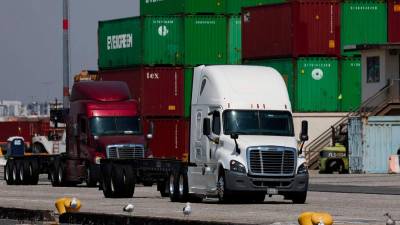KUALA LUMPUR: Countries must strengthen collaboration and broaden multilateral trade partnerships to support globalisation following the United States decision to impose 100% tariffs on pharmaceutical products from October 1, 2025.
Bank Muamalat Malaysia Bhd chief economist Dr Mohd Afzanizam Abdul Rashid said frameworks like the Regional Comprehensive Economic Partnership (RCEP) and the Comprehensive and Progressive Agreement for Trans-Pacific Partnership (CPTPP) could help Malaysian firms shift export markets.
He added that Malaysia-EU Free Trade Agreement engagement with the BRICS community are other arrangements that offer alternative pathways.
“Malaysia and other nations are in no position to alter the course of the present US administration policies,” he told Bernama.
Mohd Afzanizam stated that this development would accelerate world multipolarity where regions like the European Union and BRICS must maintain rule-based economic systems.
He believes the global community should ideally empower the World Trade Organisation (WTO) to provide stability and justice in international trade.
“It is beyond our control,” he said, suggesting the Malaysian government assess affected companies and provide support like soft loans and automation grants.
Mohd Afzanizam explained that companies could face lower sales as US demand declines, requiring tax incentives and subsidies to help them diversify markets.
“It is not a total solution, but it can help minimise the impact while they are looking to diversify their markets away from the US,” he said.
Former US President Donald Trump announced via Truth Social that America will impose 100% tariffs on branded or patented pharmaceuticals unless companies build manufacturing plants there.
Pharmaniaga Bhd managing director Datuk Zulkarnain Jafar said the direct impact on Malaysia’s pharmaceutical industry is expected to be minimal at this stage.
“Apart from a few foreign-owned companies, most local manufacturers, including Pharmaniaga, do not export directly to the US,” he noted.
Zulkarnain warned that broader implications cannot be ignored since the global pharmaceutical supply chain is highly interconnected.
He proposed that local players cushion potential impact by diversifying supply sources and enhancing local manufacturing capacity.
“Pharmaniaga has already put in place a multi-sourcing strategy and is expanding our biopharmaceutical capabilities to reduce reliance on external shocks,” he said.
Zulkarnain highlighted that most Malaysian producers focus on domestic and regional markets where demand for affordable generics is growing.
“Our strategic investments remain centred on Malaysia and in the ASEAN region markets where we see the greatest potential for value creation and impact,” he added.
Regarding short-term measures, Zulkarnain said Pharmaniaga is actively engaging with suppliers to assess potential cost or availability challenges.
“Should there be disruptions, we have contingency plans to ensure continuity of supply for our customers,” he assured.
He emphasised that collaboration between industry players and government stakeholders is critical to ensure patient access is not compromised.
“Short-term measures include securing sufficient buffer stocks, reviewing alternative sourcing options, and aligning regulatory pathways to respond quickly if adjustments are needed,” Zulkarnain concluded.
Chief negotiator Mastura Ahmad Mustafa said the US has agreed to consider granting tariff exemptions on several commodity products not produced there.
She mentioned that palm oil and cocoa are expected to receive zero tariff rates finalised next month.
Mastura, who is also the Ministry of Investment, Trade and Industry (MITI) deputy secretary-general, said Malaysia also requested zero tariffs for furniture and automotive parts.
She clarified that the agreement does not include semiconductors and pharmaceuticals, which fall under the United States Section 232 of the Trade Expansion Act of 1962.
This Act allows the US to impose additional tariffs on national security grounds.
Apart from pharmaceuticals, Washington will impose a 50% tariff on kitchen cabinets and a 30% tariff on upholstered furniture.
The US will also impose a 25% tariff on all heavy or big trucks made outside America, effective October 1, 2025.
MITI Minister Tengku Datuk Seri Zafrul Abdul Aziz said Malaysia aims to conclude the reciprocal trade agreement with the US before Trump’s visit next month for the 47th ASEAN Summit. – Bernama
